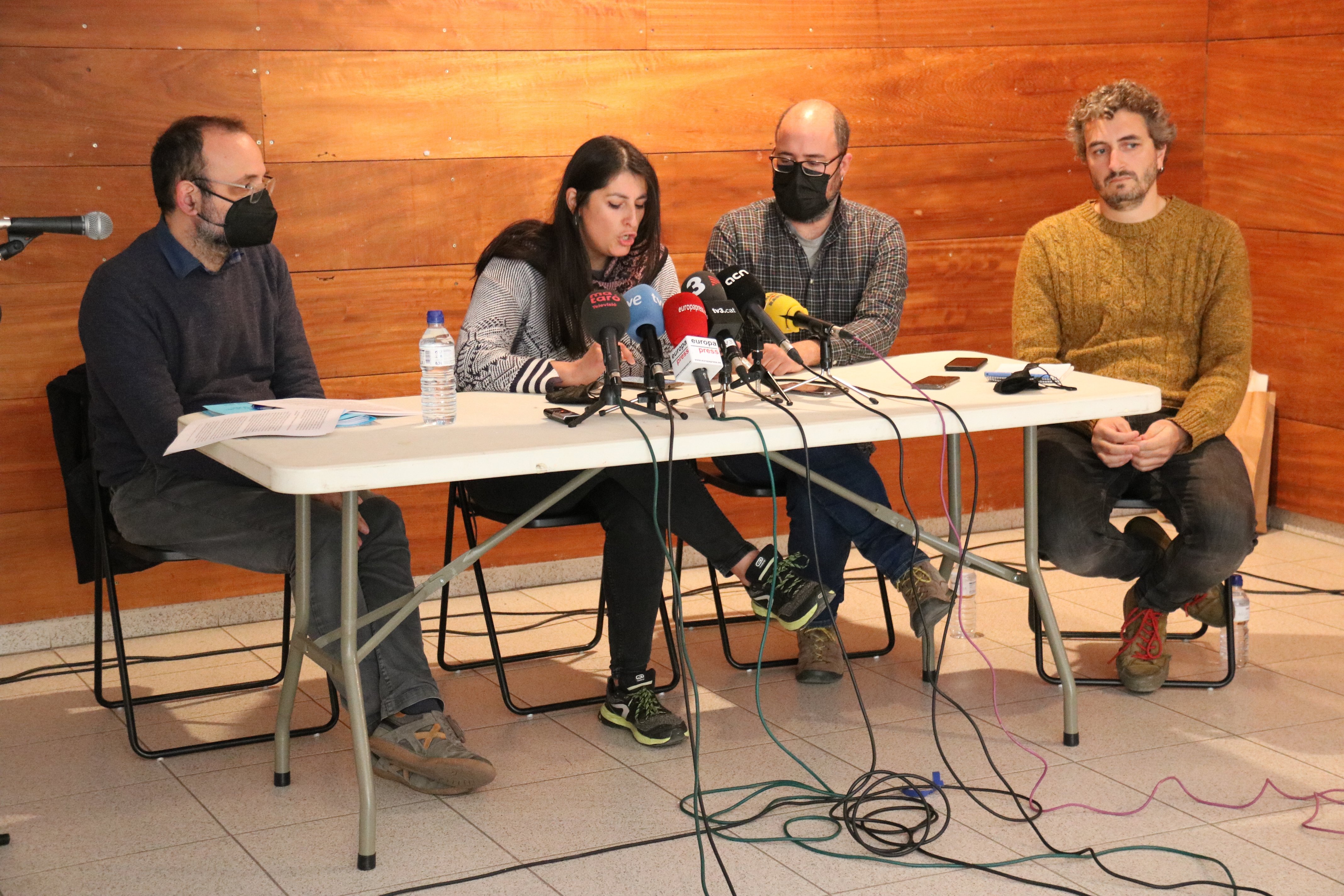The first group of families who have decided to stand up to the 25% language quota in schools. The twenty-eight families of 30 five-year-old children in the P5 infant class of Turó del Drac school in the town of Canet de Mar have today filed an administrative appeal with the Catalan High Court (TSJC) requesting that it "annul" the interim measures that require Castilian (Spanish) to be used as the language of instruction in 25% of classes, after a family in the class requested that this be done until the final sentence is handed down. The group of families announced the appeal this morning at a press conference in the coastal town of Canet de Mar, north-east of Barcelona, asserting that are taking the action because "nobody" has allowed them to defend themselves in any other way against a measure they consider "unfair and arbitrary", which is "outside all pedagogical criteria" and has "no linguistic or social arguments" behind it. In this "nobody" are included both the family that requested the 25% Castilian and the Catalan administration's education department, which, in response to the resolution, ordered the management of the centre to comply.
The lawyer for the families, Benet Salellas, explained that they entered this procedure as "co-defendants", as they feel directly affected by the legal process, and therefore legitimized to appear in it. In addition, in the appeal, they ask the high court to withdraw its interim imposition of the 25% Castilian of classes until the lawsuit is resolved. "There is no legal foundation for the 25% Castilian, it is a construction of the courts," argues Salellas. The lawyer says that the Catalan court makes reference to a ruling from Strasbourg that "in no way" justifies the 25% share. What is new in this appeal is that, for the first time, it asks the Catalan high court to justify why the level of 25% Castilian should be applied and not 18%. It also notes that Spain is a signatory of the European Charter for Regional or Minority Languages in 2001, and in particular, defended the protection of language immersion. One of the TSJC's frequently-repeated arguments is that Castilian is also a language of instruction in Catalonia, as established by the Spanish Constitutional Court when it cut back the 2006 Catalan Statute of Autonomy, in its 2010 ruling.
The families, for their part, have added that another reason they are going to court is because they believe that "the school students should be kept out of any political issue," and say that the suit filed by the complainant family has "a completely political nature" and "aims to attack the school's teaching plan." A teaching plan that, they recall, has a "consensus" and "has been approved by the teachers and the school board."
Controversy
In December, hundreds of parents, students and citizens demonstrated in Canet de Mar "against the attack on immersion" that the Supreme Court and the TSJC have carried out by imposing 25% Castilian language in schools, and in particular in response to the order for the teachers of the class of five-year-olds at Turó del Drac school to take classes in Castilian for 25% of teaching time, as an interim measure, after one family took a case to the Catalan court to demand this.
A few weeks later, the language controversy affected the whole of Catalonia again, when, on January 21st, the Catalan High Court received the Supreme Court's notification of its 2020 ruling which obliges the Department of Education to apply 25% of hours in Castilian to all schools in Catalonia, and accordingly, the Catalan court gave the Generalitat 10 days to comply with the order, although it can still lodge an appeal to attempt to overturn it. Since the 2020 resolution, a trickle of schools have had to impose 25% Castilian in specific classes at the request of some families who brought cases. The Catalan education authorities have stated that these court orders were to be obeyed, but that it would protect the teachers. The educational institutions, grouped together in the Som Escola platform, took to the streets before Christmas to demand that the protection of the country's own language should not be whittled away.
The origin of the 25% Castilian ruling was an appeal by the Spanish education ministry made in 2015, ruled on by the administrative disputes section of the TSJC on December 16th, 2020, leading to the resolution that the educational community interpreted as an attack on the Catalan language immersion system, created with the agreement of all political parties. The resolution stipulates that, as well as the classes teaching the Castilian language itself, the language must be used for instruction in one core other subject on the timetable. The ruling gave the education department ten days after receiving the communication "for it to put into effect and practice what is required to comply with the statements contained in the resolution." However, it also specifies that the defendant has two months to execute the sentence, as established in Article 104 of the Administrative Litigation Act. After two months, it will be necessary for one of the parties involved, such as the Spanish ministry of education, to request the execution of 25% Castilian language in schools. The court cannot act ex officio to impose it.

